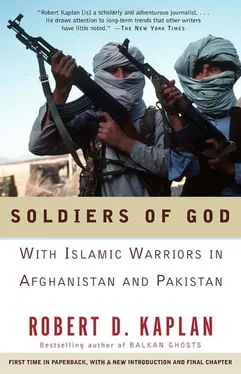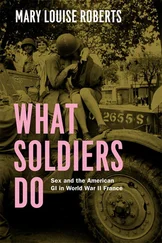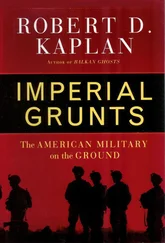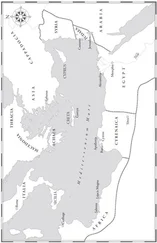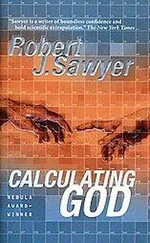The Pashtoon population of Kurram is split between Sunnis and Shias. In September of 1996 a gun battle among teenage members of the two rival Muslim sects escalated into a communal war in which more than 200 people were killed and women and children were kidnapped. A paramilitary official said that the atrocities were out of “the Stone Age;” militants even executed out-of-towners who were staying at a local hotel.
Now the situation in Parachinar is peaceful but extremely tense. Paramilitaries guard the streets around the Sunni and Shia mosques, which stand nearly side by side, their minarets scarred by bullet holes. Only a few weeks before my visit seventeen people had been killed in violence between Sunnis and Shias in another tribal region of the Northwest Frontier.
“The Shias are 80 percent of the Kurram agency,” the Shia leader in Parachinar, Mohammed Anwar, told me. “The problems have all been caused by Afghan refugees who support the Sunnis.” Yet the Sunni leader, Haji Asghar Din, claims that 75 percent of the local population is Sunni. He told me that Sunnis cannot buy land from Shias… “so how can we consider them our brothers?” The only certainty is that Parachinar, hemmed in by the Safed Koh Mountains on the Afghan border, has little more room to expand. A high birth rate and a flood of Afghan refugees have intensified the property conflicts. Population growth has also weakened the power of tribal elders and created extremist youth factions. The lack of water and electricity has increased anger. Meanwhile, the government schools are abysmal… often without teachers, books, and roofs. The poor, who form the overwhelming majority, cannot afford the private academies, so they send their children to Sunni and Shia madrassas, where students are well cared for and indoctrinated with sectarian beliefs.
Every person I interviewed was sullen and reticent. One day a crowd of men surrounded me and led me to the back of a pharmacy, where they took turns denouncing America and telling me that the Taliban were good because they had restored security to Afghanistan, ending mujahidin lawlessness. The “external hand of India” was to blame for the local troubles between Sunnis and Shias here, I was told. Conspiracy theories, I have noticed, are inflamed by illiteracy: people who can’t read rely on hearsay. In Pakistan the adult literacy rate is below 33 percent. In the tribal areas it is below that. As for the percentage of women in Parachinar who can read, I heard figures as low as two percent; nobody really knows.
Tribal and religious unrest in Pakistan is aggravated by terrible living conditions and divisive nationalisms. These are most clearly seen in Karachi, far to the south, on the Arabian Sea. Traditionless, dysfunctional, and unstable, Karachi is an unfortunately apt metaphor for Pakistan’s general condition. Only a quarter of the fourteen million residents are native to Sind, the region around Karachi, and are themselves migrants from the drought-stricken interior. The rest are immigrants from elsewhere on the Subcontinent. At least a quarter of the populace lives in katchiabaadis, “temporary houses” built haphazardly of corrugated iron, cinder blocks, wattle, burlap, and cardboard, with stones and tires anchoring their rattling roofs. Vistas of these houses go on for miles. Some katchiabaadi neighborhoods have existed for decades; they have shops, teahouses, and makeshift playgrounds. Goats wander everywhere. Children and adults sift through mounds of garbage in search of items to recycle. “The water situation is getting worse; electricity and other infrastructure are hopeless,” a foreign expert told me. “The entire foundation of life here is imploding… except, of course, in the neighborhoods where people have lots of money.”
Most Third World cities manifest dramatic contrasts between rich and poor. But in no other place have I seen rich and poor live in such close and hostile proximity as in Karachi. On one street a grimy warren of katchiabaadis lay to my right, and a high wall guarding luxury villas and a Kentucky Fried Chicken outlet lay to my left. Karachi’s villas look like embassies, with guards, barbed wire, iron grilles, and beautiful bougainvillaea and jacaranda trees adorning stucco ramparts. The villas, with their satellite dishes for watching CNN, MTV, and other international channels, symbolize a high-end kind of globalization; the katchiabaadis… so much like the slums I have seen throughout the developing world… a low-end kind.
During the week that I was in Karachi in May, seven vehicles, including a bus, were set afire by rampaging youths, who also broke windows at a McDonald’s and a Kentucky Fried Chicken. Seven other vehicles were carjacked. Bombs exploded near a police station and in the central business district, killing one person and injuring six others. Three people were murdered by unidentified assailants. As in Baluchistan and the Northwest Frontier Province, political, ethnic, and religious reasons are given for the violence. But the evidence is often murky. Seeing how people lived in Karachi, I wondered if sheer rage might have much to do with it. I consider it a triumph of the human spirit, in fact, that there is not more violence here: the day that the youths went rampaging was the tenth in succession without water for part of the city. The wealthy have their own private water tanks, water-distribution network, and generators.
More than 4,000 people have been killed and more than 10,000 wounded in Karachi since the mid-1980s, when the city began to overflow with weapons from the Afghan war and communal fighting broke out between Pashtoons and two generations of mohajirs, Muslim refugees from India. In the late 1980s and the 1990s mohajirs and Sindhis fought each other here and elsewhere in Sind. In the first ten months of 1998 there were 629 murders in Karachi committed by what a local magazine called “unaffiliated contract killers;” none was solved by the police. Mobile phones were banned in the 1990s, because urban guerrillas were using them. Wire services dutifully report all the violence in Karachi, and in Baluchistan and the Northwest Frontier, too. The reports are rarely picked up by the American media.
Just as the yearning for an independent Pashtoonistan is ever present in the Afghan borderlands, in southern Pakistan some Sindhis long for an independent Sind. Sind has been inhabited for 6,000 years, and although the Sindhis are a mixture of Arabs, Persians, and other passing conquerors, they retain a strong cultural identity. But the idea of a stable, independent Sind is ludicrous, given the enmity between Sunnis and Shias that I saw in Karachi.
I drove through a mishmash of gleaming high-rises, katchi-abaadis, and sloppily constructed overpasses to arrive at a guarded house where a man introduced himself as a “retired school principal” and a “moderate Shia.” Surrounded by his friends, he told me, “They’ll kill us if you identify us by name.”
General Musharraf, Pakistan’s current ruler, “is a serious, humane man, but he has arrived too late to save Pakistan,” the Shia leader explained. “With life getting worse materially, religion is more enticing, and tensions between us and the Sunni extremists are on the rise.” The man spoke at length about universal love, honor, and tolerance in a very soft and patient tone, while offering me tea and dainty sweets. He gave me several books that laid out the Shia view of Muslim history… doctrines, he told me, that had gotten his friends murdered. Nothing he said seemed offensive or narrow-minded. Rather, it was the obsession with Shi’ism itself that was the problem. His orthodoxy conflicted with others in a land where poverty is stark, ignorance and conspiracy-mongering are widespread, and the state itself is weak.
Читать дальше
